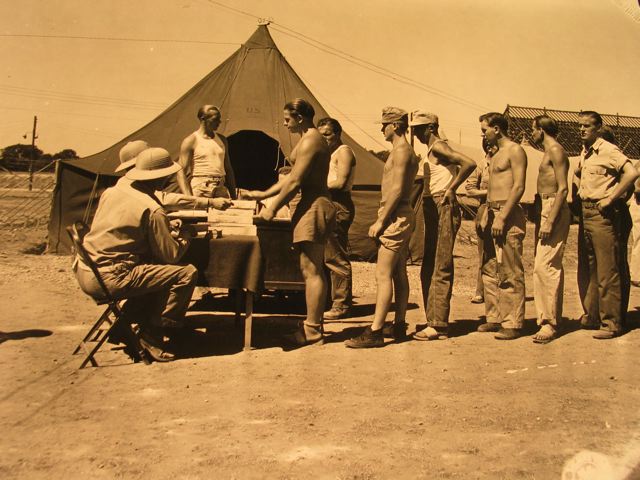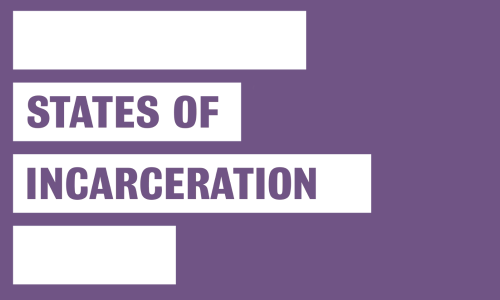During World War II, over 6,000 prisoners were housed in Prisoner of War (POW) camps in Michigan. Approximately 1,000 POWs were held in the Upper Peninsula, while 5,000 were housed in the Lower Peninsula. Many of the camps were former Civilian Conservation Corps barracks that had been idled since the program disbanded in 1942. Most of the prisoners were German soldiers captured in North Africa.
World War II created a huge labor shortage in the U.S. due to the draft. One solution was to use POW labor in the agriculture and forestry fields. Approximately sixty percent of the POWs in Michigan were contracted out to work on farms picking fruit and other crops. POWs also cut pulp wood in the forests of the Upper Peninsula, earning eighty cents per day.
By all accounts the prisoners were respectful and well-behaved. There were very few escape attempts reported. The American Red Cross inspected the camps to monitor conditions, but there were few complaints, as the German POWs had heard rumors of the horrible conditions in Russian POW camps.
At the close of World War II, the prisoners were returned to their homeland under the terms of surrender. Some of the POWs maintained contact by writing letters to their former employers after the war. A few former prisoners immigrated to the U.S. Some POWs who died in camps are buried at Fort Custer National Cemetery at Battle Creek.
There were 32 POW Camps in Michigan. While the existence of the camps was not kept secret, it was not publicized for security reasons.
List of Camps:
- Camp Allegan
- Camp AuTrain
- Barryton, Mecosta County, MI
- Benton Harbor, Berrien County, MI
- Blissfield, Lenawee County, MI
- Caro, Tuscola County, MI
- Coloma, Berrien County, MI
- Croswell, Sanilac County, MI
- Fort Custer, Galesburg, MI
- Dundee, Monroe County, MI
- Camp Evelyn – Alger County, MI
- Freeland, Saginaw County, MI
- Fremont, Newaygo County, MI
- Camp Germfask – Germfask, MI
- Grant, Newaygo County, MI
- Grosse Ile Township, Wayne County, MI
- Hart, Oceana County, MI
- Camp Lake Odessa, Ionia County, MI
- Mattawan, Van Buren County, MI
- Mass, Ontonagon County, MI
- Milan (USFR), Monroe and Washtenaw Counties, MI
- Odessa Lakes, Tuscola County, MI
- Camp Owosso – Shiawassee County
- Camp Pori – Upper Peninsula
- Camp Raco – Upper Peninsula near Sault Ste. Marie
- Romulus Army Air Field, Wayne County, MI
- Shelby, Oceana County, MI
- Camp Sidnaw – Sidnaw, MI
- Sparta, Kent County, MI
- Wayne (Fort), Detroit, Wayne County, MI
- Waterloo, Jackson County, MI
- Wetmore, Alger County, MI
The Archives of Michigan has in its Oral History collections an interview with the late Ernst Floeter (August 8, 1925 – August 29, 2015) who served as a Prisoner of War of the United States during World War II. Click here to listen to the complete audio and learn more about this topic through his firsthand experience. Click here to view a transcript of the interview.



